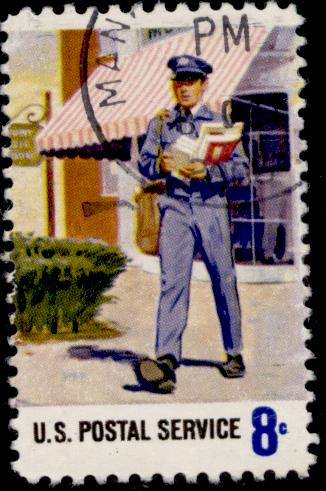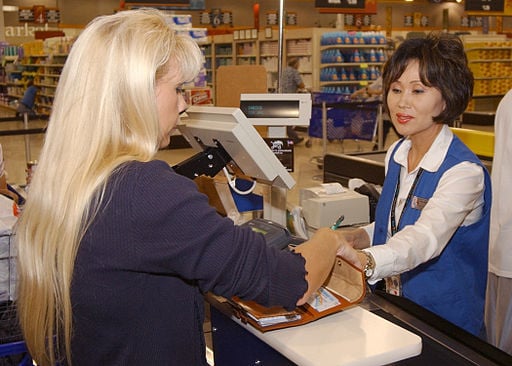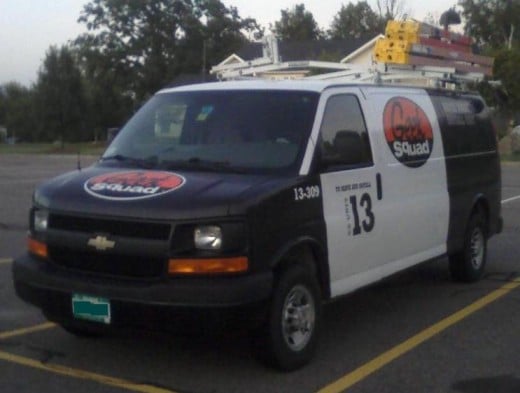Using Good Manners Instead of Bad Manners With People Who Serve You - Remembering To Be Courteous

Using good manners and being courteous doesn't hurt, but using bad manners does
We tend to think that we're nice people, and that's true for most of us. However, a heads up never hurts about remembering not to use bad manners - that people who provide services should receive the same courtesy, and benefit from the same good manners that we would use with any other acquaintance.
A few...well, several...decades ago, I waited tables while I was a student. Before that, while I had been raised to be polite, I hadn't paid that much attention to how people treat other people who are providing services for them. I started paying attention when I was on the receiving end of that treatment, and I've remained conscious of the interactions between people in a service transaction since that time.
In my hometown - a small town - I had seldom seen very unkind treatment coming from a customer, because when it reared its ugly head, it became an item for discussion for the whole town. If someone was rude to a person behind the counter or who was serving a meal, the person on the receiving end of a nasty customer's bad behavior could easily be the business owner or a member of that family. The person who had been nasty could just as easily find the door held open and an invitation by the owner to get out - now!
If the recipient of rudeness wasn't the business owner, that person was sure to be someone else that the naughty customer had an indirect connection with. In a small town like mine, everybody knew everybody, so we instinctively knew that any rudeness might accidentally be to a neighbor's children or spouse, or to a friend or relative of someone in our school or congregation. At any rate, it was considered a huge faux pas, and not worth the trouble. After all, a reputation for any bad behavior gained in a small town is a life sentence, because people there just don't forget. (It was a very effective form of training.)
Not so in a larger community. In many ways, I love living in a larger community, where everybody doesn't know all of my personal business all of the time. However, in the case of manners, a smaller community makes demands that some people seem to need very badly.
I went to the store this morning, and ran into a couple of those people. I was fascinated by what I saw, in that hypnotized-but-revolted way that we sometimes are. I watched these two different people in line individually show total rudeness to the clerk who was checking out their groceries. When you consider that there were only four of us in the line, that makes the odds of the poor clerk running into a jackass about 50-50. (I would say that I hope she makes good money, but we already know the answer to that.)

Bad manners in the grocery line
In the first instance, an elderly lady was having trouble finishing her debit card transaction. The clerk couldn't very easily get around to that side of the checkout stand to look at the debit card screen, so she asked the customer who was next in line if he could help the lady. He flatly told her he wasn't being paid to help her customers, and that she should do it herself. About that time, the lady figured it out for herself, but she was embarrassed at having inconvenienced everyone. She hustled out of there.
So did the rude man, in a very huffy way. Needless to say, both the clerk and the elderly lady were handed stress that a little kindness would have avoided.
Immediately behind the insensitive clod who wouldn't help another human being (did I just exhibit an opinion there?) was a woman who was glued to her cell phone. She wasn't upset and she wasn't talking. She was obviously listening to someone on the other end. The clerk had to get her attention several times to ask her to take her groceries out of the cart, to move them forward so the clerk could reach them, to pay for them and to take them away. I wanted to give the woman's phone a hearty toss across the store, and I wasn't even required to do a transaction with her.
I walked away from that grocery line with the resolve to write a small heads up about being kind to the people whose job it is to provide our services. It shouldn't be a big stretch for us to remember that we are all living, breathing human beings, no matter which side of the serving transaction we're on.
But sometimes, we are distracted. A little more awareness of what we're doing in the moment would help us in almost all things. This is no exception.
We all deserve attention and respect. (That is, until we've taken that big step that shows we don't deserve it after all.) We are served many times in a week by people we don't know. People provide services to us in grocery stores, department stores, pharmacies, restaurants, coffee shops, gas stations, clinics, daycare centers, government offices, libraries and just about anywhere else you can think of. People provide support for us both in person and by phone every week.
We expect that service to be delivered in a courteous and pleasant manner, and most of the people who provide that service fulfill our expectations very well.
In turn, the people who provide services and customer support have the right to expect courtesy and cooperation from us.
So, because we can all use a heads up from time to time (and because some of us can use a total refresher course in how to act) here are a few tips for dealing with people who are providing services, no matter where they are.

7 courtesy tips for remembering good manners
- Remember the golden rule - treat another person as you would want that person to treat you. The customer side of the counter is not the "I can be rude now" spot.
- Remember your manners. If you've been taught to be pleasant to people you encounter, and to say "Please" and "Thank you", then do so. It isn't painful at all to make another person's day a little more pleasant. A smile doesn't hurt, either. The people on both sides of the transaction will walk away feeling good.
- Pay attention!
- If you are in line or about to be served, put the cell phone away. When you're talking or texting on the cell phone, you aren't paying attention to what's happening around you, and it's very annoying to the people who are trying to provide a service to you, as well as to those who are waiting to be served next.
- Stop chatting with your friends long enough to let the person who's serving you get through the necessary steps of providing that service. Too many times, people are chatting in a restaurant, while the order is being taken, or when the wait staff are trying to serve the meal. Suspend the conversation during those times so the tasks can be completed to everyone's satisfaction. Your wait staff is also responsible for other tables. When you take more time than is reasonable for the situation, the delay you cause is also taking away potential tips (income) from that wait staff due to delays at other tables. - Don't take your bad day out on the people who serve you. If you're in a bad mood and have to go someplace where you'll be served, remember that you're not talking to a punching bag. You're talking to a person whose day you can make worse with your bad temper and impatience. (Stimulating another person's body to bathe itself with stress hormones is damaging to that person's health. And what goes around comes around. It's called karma.)
- If something's gone wrong with a transaction, remember that most of the time, the person you tell about the problem later is seldom the person who has the power to do much to correct it. As a matter of fact, the person behind the customer service counter or on the phone usually has the lowest level of authority. The customer service representative has guidelines, and may stretch them a little from prior experience, but if you need more than that person can provide, ask to speak with a supervisor. Don't give a bunch of attitude to someone who can't help you no matter how angry you become.
So, again, remember your manners. Don't use "you" when talking about the problem, unless the person you're talking to is actually involved in causing the problem. Use "your employer" or, better yet, the actual company name. For example, "Macy's needs to change its policy." Not "You need to change your policy." - About the only thing you catch with vinegar is fruit flies. You catch more of anything else with honey. Keep a pleasant attitude and a friendly face when you're being served. If you are a regular customer, don't you want to be remembered as a kind person, instead of the jerk who comes in too often?
- If you see another customer being rude, and you are an assertive person, it's ok to say something to the other customer. Be rational and kind, but also be assured that when one customer lets another customer know that he or she is being a jerk, the jerk gets the message very quickly. My favorite line is, "I'm sorry you forgot your manners today. Would you like to go home and get them?" I only have to use it a few times a year, but the sweeter I say it, the more effective it is.
I know that people who provide services can also be rude. But the rudeness on the other side of the transaction isn't the topic of this discussion. Besides, the behavior you're trying to control is your own.
Our own behavior is enough of a challenge - no matter how we try, we can't control our own behavior 100% of the time.
Which brings me back to why I wrote this in the first place. We all have a bright and positive side. It's not only good for other people, but good for us, too, if we make a habit of bringing it up front and sharing it.
Good manners vs. bad manners
How often do you regret not being courteous in a transaction with a customer service representative?
Good books from Amazon about manners
Please support the writing that you like
If you vote up or vote down an author's writing, you will show the people who follow you what you feel the quality of the writing is. Please support writers by voting up their work.









